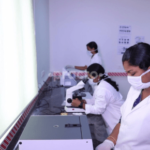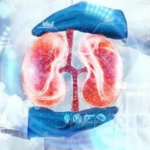1. Introduction to CLT in Urology
Chronic Lymphocytic Thyroiditis (CLT) is a condition that can impact various systems in the body, including urology. It involves the thyroid gland but has far-reaching effects on overall health, influencing urological function indirectly through metabolic and hormonal imbalances.
2. What is CLT
CLT stands for Chronic Lymphocytic Thyroiditis, commonly known as Hashimoto’s Thyroiditis. It’s an autoimmune disorder where the body’s immune system attacks the thyroid gland, leading to hypothyroidism, a condition where the thyroid does not produce enough hormones.
3. Symptoms of CLT
Symptoms of CLT include fatigue, weight gain, cold intolerance, and muscle weakness. These symptoms can be subtle at first but may gradually worsen over time. It’s important to recognize these signs early to manage the condition effectively.
4. Diagnosis of CLT
Diagnosis of CLT typically involves blood tests to check levels of thyroid hormones and antibodies against thyroid tissue. An ultrasound of the thyroid gland may also be used to detect inflammation or other abnormalities.
5. Impact of CLT on Urological Health
CLT can affect urological health indirectly. Hypothyroidism, resulting from CLT, can lead to decreased kidney function, altered urinary frequency, and increased risk of urinary tract infections due to weakened immune response.
6. Hormonal Imbalances and Urology
Hormonal imbalances caused by CLT can affect the urinary system. Thyroid hormones play a crucial role in regulating metabolism and organ function, including the kidneys. Low levels of these hormones can lead to various urological issues.
7. Kidney Function and CLT
Kidney function is closely linked to thyroid health. Hypothyroidism can reduce kidney function, leading to decreased filtration rate and potential accumulation of waste products in the body, impacting overall urological health.
8. CLT and Urinary Tract Infections
Patients with CLT may have an increased risk of urinary tract infections (UTIs). Hypothyroidism can weaken the immune system, making the body more susceptible to infections, including those affecting the urinary tract.
9. Managing Urological Symptoms in CLT
Managing urological symptoms in patients with CLT involves addressing the underlying thyroid disorder. Treatment typically includes thyroid hormone replacement therapy, which can help alleviate urological symptoms by restoring normal hormone levels.
10. Medications for CLT
The primary treatment for CLT is levothyroxine, a synthetic thyroid hormone. This medication helps normalize thyroid hormone levels, which can improve symptoms and prevent complications, including those affecting the urological system.
11. Diet and CLT Management
Diet plays a significant role in managing CLT. A balanced diet rich in iodine, selenium, and zinc can support thyroid health. Avoiding goitrogenic foods like soy and cruciferous vegetables may also be beneficial for some patients.
12. Exercise and Urological Health in CLT
Regular exercise is important for maintaining overall health, including urological health, in patients with CLT. Exercise can help manage weight, improve metabolism, and reduce the risk of complications such as UTIs and kidney issues.
13. Monitoring Thyroid Levels in CLT
Regular monitoring of thyroid hormone levels is crucial for patients with CLT. This helps ensure that hormone replacement therapy is effective and allows for adjustments in treatment to prevent urological and other complications.
14. Complications of Untreated CLT
Untreated CLT can lead to severe complications, including heart disease, infertility, and severe kidney dysfunction. It’s important to manage the condition proactively to avoid these potential issues.
15. Role of Endocrinologists in CLT Management
Endocrinologists play a key role in managing CLT. These specialists focus on hormonal disorders and can provide comprehensive care, including adjusting medications and monitoring for complications.
16. Interdisciplinary Approach to CLT Care
An interdisciplinary approach involving endocrinologists, urologists, and primary care physicians can provide the best care for patients with CLT. This ensures all aspects of the patient’s health are managed effectively.
17. Patient Education and CLT
Educating patients about CLT is essential for effective management. Understanding the condition, its symptoms, and treatment options can empower patients to take an active role in their care and improve outcomes.
18. Support Groups for CLT Patients
Support groups can be a valuable resource for individuals with CLT. These groups provide emotional support, share experiences, and offer practical advice on managing the condition.
19. Research and Advances in CLT Treatment
Ongoing research into CLT is crucial for developing better treatments. Advances in understanding the genetic and environmental factors contributing to the disease may lead to more targeted therapies in the future.
20. Preventive Measures for CLT-Related Urological Issues
Preventive measures, such as maintaining a healthy diet, regular exercise, and avoiding known triggers, can help reduce the risk of urological issues in patients with CLT. Regular medical check-ups are also essential.
21. Importance of Early Detection of CLT
Early detection of CLT can significantly improve treatment outcomes. Recognizing symptoms early and seeking medical advice can prevent complications and improve quality of life for patients.
22. Living with CLT: A Patient’s Perspective
Living with CLT involves managing a chronic condition, but with proper treatment and lifestyle adjustments, patients can lead normal, healthy lives. Support from healthcare providers and loved ones is crucial.
23. Impact of Stress on CLT
Stress can exacerbate CLT symptoms. Managing stress through techniques such as mindfulness, meditation, and therapy can help improve overall health and reduce the impact of the disease on daily life.
24. Future Directions in CLT Research
Future research in CLT aims to uncover new insights into the disease’s causes and develop more effective treatments. Personalized medicine approaches, considering individual genetic and environmental factors, are promising areas of study.
25. Conclusion: Managing CLT Effectively
Effective management of CLT involves a comprehensive approach that includes medication, lifestyle changes, and regular medical monitoring. By addressing both thyroid and urological health, patients can maintain a good quality of life and reduce the risk of complications.


